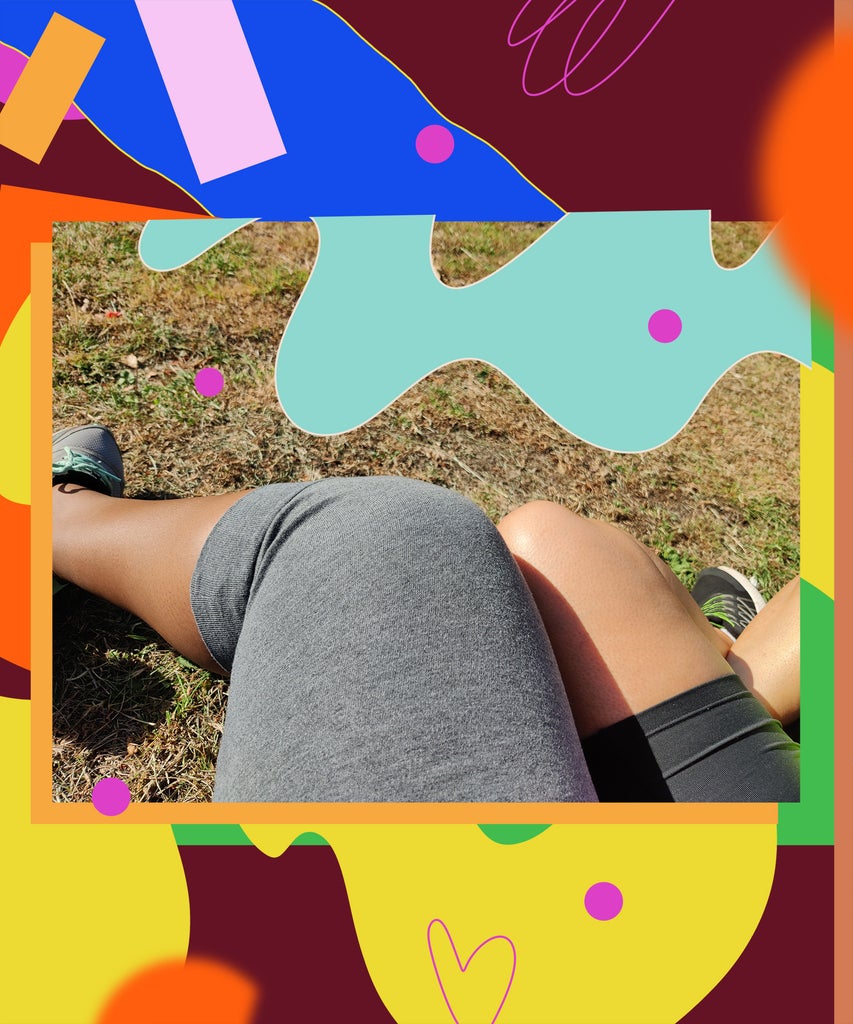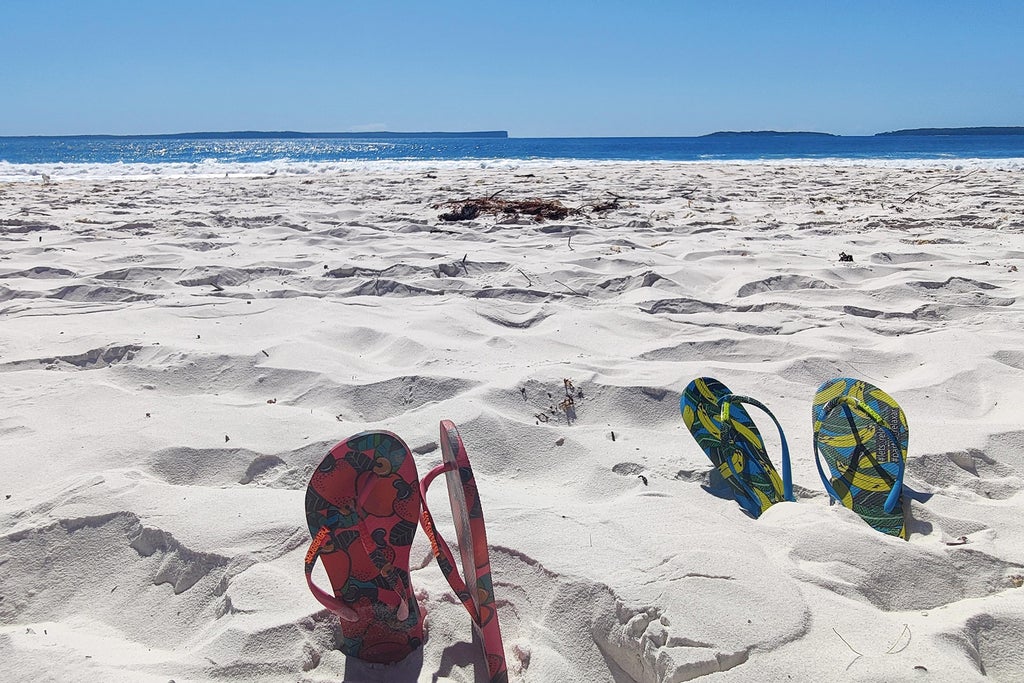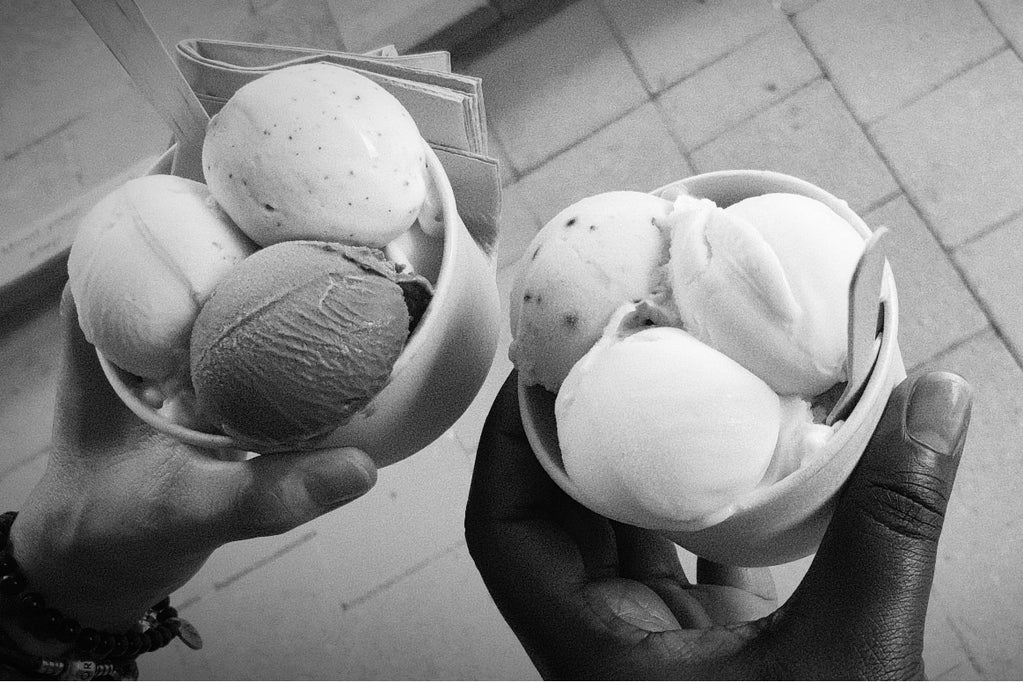
It’s not that deep.
That’s what I tell myself whenever my pen hesitates over boxes on a form, under the ‘sexual orientation’ section. It’s just a quota thing, no one even cares. I should be able just to tick a box, right?
The problem is, there isn’t really a box for me anymore.
I’m in my mid (see: late) thirties and I’m in a committed same-sex relationship. We’re both London-born and raised; I am West African, she’s mixed South Asian/ European. It’s the first same-sex relationship either of us has been in, and it will hopefully be the last because she is ‘my person’.
The short version of our story is that we met at work, became friends, someone confessed their feelings (me) and we got together. The longer version is a bit more complicated.
I’ve never been shy in talking about relationships — my debut novel Bad Love is all about them; the romantic, the familial and the places we go to experience them. I have spent the majority of my adult life as a Black cis-het woman dating men whilst trying to retain my sense of self. Sometimes it was fun, other times it was hard work. But meeting my current partner was surprisingly easy. I guess when you know, you know. Y’know?
We met during a transitional time for us both; I was on a dating hiatus and planning a 6-month move away from London, and she was getting out of an emotionally intense situationship. In the short time we began working together, I developed a crush on her that took me completely by surprise. My type was a more masculine, bulky, overly-sensitive yet somehow emotionally-unavailable man with a height complex. I believe the kids today refer to them as ‘Short Kings’. She was not that, obviously. And I was definitely not her type either — picture an average height, olive-skinned, handsome, alpha male and you will not find me anywhere in that descriptor.
For some reason, we clicked and it made sense to us, despite the identity crises it threw us both into. For my partner, having been raised in a mostly South Asian household with a close-knit family, she embraced her traditional values and always saw herself raising children with a partner (see: man) who fit in well with said family. My arrival seemed to derail that plan.
For me, I didn’t grow up feeling a strong connection with my West African heritage or really seeing examples of healthy relationships or positive family dynamics, so I was not traditional at all. I considered myself happily independent, open to dating but with no intention of ‘settling down’. My current partner changed that for me too, and with her, my future looks different and more exciting than I could have ever imagined.
Between us, our feelings never wavered for each other. But what our relationship represented to the rest of our little world, is something that we still contend with three years on.
I remember telling a close male gay friend about us when we first got together, and he was taken aback, having heard me lament numerous times about my dating escapades with men.
‘Oh. So, you’re gay then? Cool.’
‘Well no, that’s not quite it. It’s just a her thing.’
‘Hmm, right. Ok.’
I frowned, repeating our origin story once more, of colleagues to friends to lovers. The fact that we were both women was secondary to my main point – I had actually met someone who could be the real thing for me. Why weren’t we more excited about that?
He listened and nodded along. But still, the question hung in the air.
So, you’re gay then?
You know how you can know something isn’t true, but you can’t articulate why?
It was only after he met my partner that he understood, admitting that the box he had ticked for me wasn’t accurate. Before that point, the boxes hadn’t even mattered to me, but now I wondered if they should. My partner felt the same as me; we were still attracted to men, but neither of us were vibing with other women outside of each other — or wanting to. So, not bisexual and not gay. Maybe queer? Did that even hold meaning for either of us?
The interaction with that first friend played out a few more times, whilst others were completely unphased. A couple even revealed their own same-sex experiences as reassurance. Or perhaps it just gave them permission to do so.

Ultimately, it was the acceptance from multiple friends within and outside the LGBTQIA+ community that meant we didn’t have to label anything we weren’t ready to. But once we started telling our families, things shifted for us once again.
The nature of our individual heritages and the fact that we were fully grown adults already, meant the reactions we got were either muted, passive-aggressive, or full of shock and confusion.
Months after I told one of my parents about our relationship, they asked if my partner and I were still together or if we had ‘gone back to being friends again’. I took a considered pause before telling them ‘that’s not how it works’. They looked openly disappointed, which was disheartening but not surprising. I had introduced a new element of myself that had taken me some time to get used to; I could extend them a little patience too. But then again, my other parent didn’t bat an eyelid and still makes considerable effort to ask after my partner whenever we speak.
Meanwhile, before my partner told some of her family members, they were having a lively discussion (without her) about freezing her eggs because they were concerned she was ‘running out of time’. When she finally told them about us, it didn’t seem to allay their fears about her not having children, the assumption was that our relationship meant kids were definitely off the table, which they are not.
“There is no one box that can sum up the multiplicity of one person’s life, especially by the time you get into your thirties.”

And then, of course, both families raised the interracial thing.
Ironically, we were so concerned with how being in a same-sex relationship might be viewed, being in an interracial couple didn’t even occur to us.
Dating men, I was very cognisant of my race, especially whilst combating the negative stereotypes that come with being a single Black woman in the western world. But with my current partner, it just wasn’t a factor.
Don’t get me wrong, this isn’t some colourblind situation. We talk about the differences and similarities in our cultures on the regular, and spoiler alert – we’re all incredibly similar. But the London that our parents migrated to 35+ years ago was different to the one we know now. Black and brown people were pitted against each other in a tried and tested ‘divide and conquer’ political strategy that was designed to stop the collectively oppressed from uniting and rising up against the oppressor. Just saying.
Through that lens where the previous generation brought into the stereotypes about their Black and brown neighbours, I can see why our being together could be an additional source of concern for our parents. But like I said, we have different experiences. And maybe that’s what I’m trying to get at.
There is no one box that can sum up the multiplicity of one person’s life, especially by the time you get into your thirties. The real box is fluid, it changes shape and size with each new interaction and engagement with the world.
And when I think of it like that, it does sound kind of deep, doesn’t it?
Maame Blue’s debut novel Bad Love is out now
Like what you see? How about some more R29 goodness, right here?
How Black Friendships Can Thrive Through Therapy